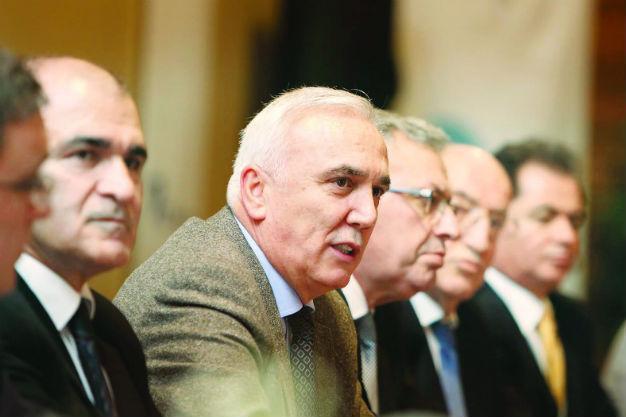Turkey’s banks signal support for Antalya businesses amid Russian crisis, global risks
ANTALYA

DHA photo
The Banking Association of Turkey (TBB) members met businesspeople from Antalya, signaling support to sectors that have faced difficulties amid the Russian crisis and global fluctuations.“We cannot win, everybody loses…We will altogether resolve the existing problems by using our sources as much as possible,” said TBB President and state-run Ziraat Bank CEO Hüseyin Aydın in a speech to journalists, as quoted by Anadolu Agency, after a 3-hour closed door meeting between senior bankers and several leading businesspeople mainly from the tourism, agriculture and trade sectors.
Sources told news agencies that the parties discussed the possibilities of cheaper loans and financial support to these sectors through Turkey’s lenders.
Aydın noted that building closer ties between the TBB and these sectors was good to protect and maintain Turkey’s assets and gains as best as possible.
He added that several issues affecting the business world, such as global economic fluctuations, were discussed at the meeting.
Aydın said the association has not faced any negative financial effects from the Russian crisis yet, but has a very solid financial base that help resolves such negativities.
İş Bank CEO Adnan Bali said the tourism sector is preforming better in the repayment of loans than it did a year earlier, adding that the tourism sector has always been above average in this area.
Turkey’s exports to Russia decreased to $280 million between Nov. 24 and Dec. 31, 2015, after Russia began to impose sanctions against Turkish products, Economy Minister Mustafa Elitaş said on Jan. 4, adding that the drop in exports were much steeper in the first days of the crisis.
Turkey saw a dramatic drop in the number of foreign arrivals from Europe and Russia in the first 11 months of the year, while the number of total foreign arrivals saw only a slight decline (around 1.36 percent) in the aforementioned period compared to the first eleven months of 2014, according to temporary data revealed by the Tourism Ministry on Dec. 29, 2015.
A total of 34.8 million foreign people visited Turkey in the first eleven months of 2015, according to data. The number of Russian arrivals (mainly to Antalya) decreased by 18 percent, totaling only 3.6 million in the first eleven months of the year.
Russia has also started to impose sanctions over many agricultural imports from Turkey as of Jan. 1. The list includes fruits and vegetables such as tomatoes, onions, grapes and apples, as well as chicken products.
Representatives from these sectors have said they have been in search of market diversification to overcome the expected losses, although there has not any serious financial losses.
Meanwhile, the head of Turkey’s Banking Regulation and Supervision Agency (BDDK), Mehmet Ali Akben, also said Turkish companies with business ties to Russia were not having difficulty repaying their loans, but the watchdog will take the required measures to help them in restructuring their debts if they begin to encounter problems in a speech made at the end of December 2015.
















